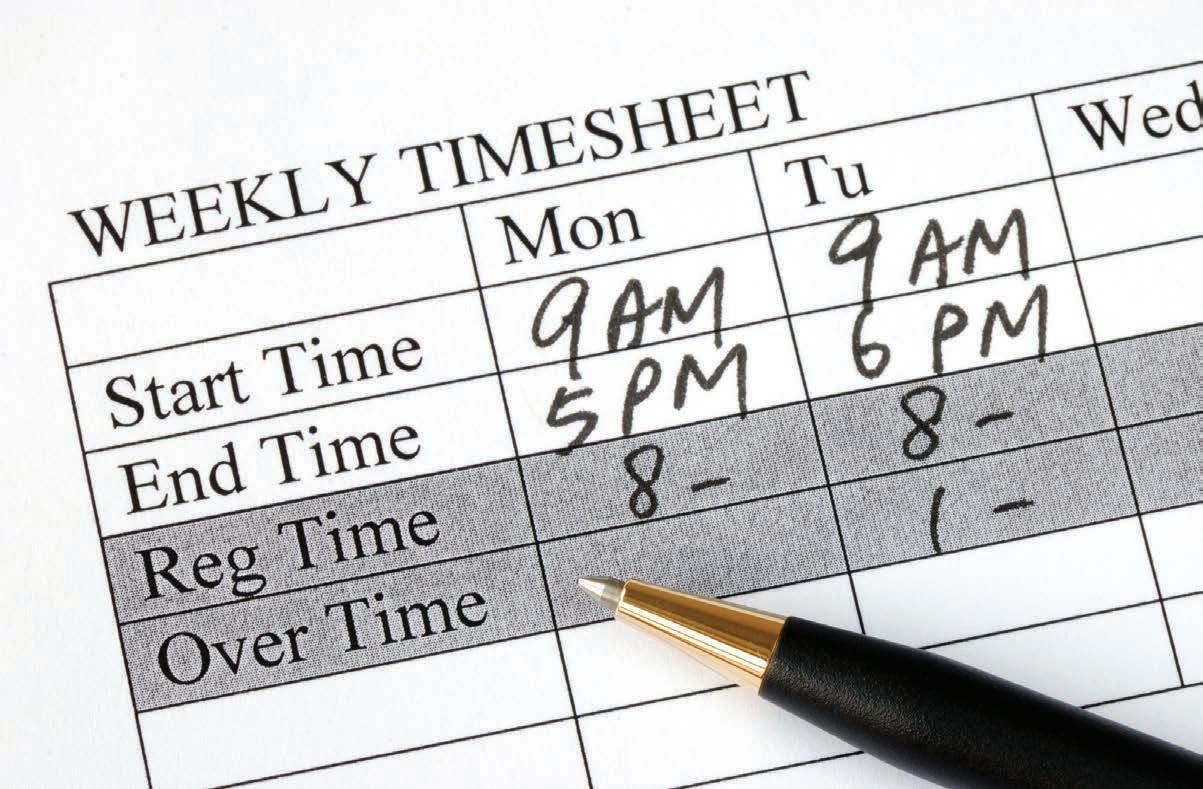
5 minute read
Jobs and the W orkplace
20) How to Find Jobs
You can find jobs on the Internet (Craigslist.org), through friends, classified ads, job agencies, workforce centers or simply by walking around and looking for signs. “Networking” is building connections and talking to people you know or asking them to introduce you to others. Networking allows more people to know that you are looking for a job. Volunteering is also a good way to meet new people and get experience. Be persistent, and don’t be afraid of getting rejected. Sometimes you need to hear “no” a few times before you hear a “yes.” If you want to start a business visit SBA.gov for information. It is often necessary to have a résumé that includes your: - Contact information. - Previous employment information. - Educational background. - Special skills, degrees, certifications, and classes you have taken in your field. Résumés often include an objective statement that describes the kind of work you are looking for.
22) Cover Letters
Many professional jobs require a cover letter that explains why you are interested in the job, your relevant experience, and why you would be good for the position. Have a native English speaker edit your cover letter to make sure that there are no errors.
23) References
Your résumé should also include three or more references that employers can contact to learn more about your: - Work experience. - Personality and teamwork. - Punctuality and reliability. - Strengths and weaknesses. When you leave a job, it is a good idea to leave on good terms in case you need that supervisor to be a reference for you in the future. Make sure that your references know that they might be called. It is respectful to let your employer know 2-6
21) Résumés
weeks before you leave a job. You can find sample résumés on the Internet.
24) How to be a Good Employee
Leaders and managers generally want employees who: - Are positive and enthusiastic. - Are reliable and work hard. - Want to learn new things and ask good questions. - Use appropriate dress and language. - Follow the rules and can be trusted. - Collaborate and help coworkers.
Go to page iv to see what these icons mean
25) Interviews
For an interview you should: - Arrive 10 minutes early or on time. - Dress appropriately. - Practice your responses before the actual interview. - Gather as much information about the job and company as possible. - Make eye contact, relax, and maintain a confident posture. - Keep your answers brief and relevant. Interviewers often ask you about your experience, why you are interested in the job, and your ability to work with a team. Prepare good questions to ask at the interview such as: - What are your expectations for the person who gets this position? - What do I need to know about the team I would work with? - What is the culture of this organization? You may have to go to a few interviews before you are hired. After the interview, send thank you notes to the people who interviewed you.
26) Getting Paid
When offering you a job, the employer will tell you how much the pay will be. You can be paid an hourly wage or an annual salary. - Receiving a salary means that each paycheck will be the same amount.
Employees on salary may be asked to work more without additional pay. - Working as an hourly employee means that you are paid for the number of hours you work. Your paycheck amount will change depending on how many hours you worked. You can get paid once a week, bi-weekly (once every two weeks), semi-monthly (twice a month), or monthly. Bi-weekly payments provide 26 checks per year and semi-monthly payments provide 24 checks per year. Some supervisors will offer raises without your having to ask, or they will have a system for offering raises. With some supervisors you need to ask for a raise.
27) Benefits

Benefits offered by employers vary, and they can include the following: - Medical/dental insurance. - Paid vacation time and sick days. - Retirement benefits. The typical job offers two weeks of paid vacation a year. It is more common to receive benefits with fulltime work than with part-time. If you get hurt during your job, you may have the right to receive money from your employer through workers’ compensation. A union is an organization of workers who secure benefits and rights in the workplace. Members of a union pay to support the activities of the union.
28) Working Overtime
Employers generally have to pay hourly workers time-and-a-half for any hours above 40 per week. So if you normally make $10 per hour you would make $15 per hour of overtime. Some salaried employees are not eligible for overtime pay depending on the job responsibilities and salary.
29) Minimum Wage
The federal minimum wage is set and changed by Congress. Each state has its own minimum wage law. Employees who receive a lot of money in tips, such as restaurant jobs, may receive less than the minimum wage.
30) Time Sheets
Always save your receipts from time clocks for hours you worked, or write down the hours you worked if the time clock does not print a receipt. If you see a mistake, talk to your supervisor and do not get angry.
Go to page iv to see what these icons mean

31) Paychecks
Your paycheck shows the amounts that have been taken out of your check for federal and state taxes, and for Social Security and Medicare (FICA). FICA taxes are based on a percentage of the amount you receive. The number of exemptions you claim on your W-4 form changes the amount that is taken out of your paychecks. The amount taken out is the amount that you are likely to owe the IRS at the end of the year. If the IRS shows that you owe less than the amount that was taken from your paychecks, you will receive a refund of the amount you overpaid. If you owe more, you will have to pay it. The “gross” income is the amount you make before taxes and “net” is the amount after taxes are deducted.
(31) Paycheck example
32) Management Styles & Coworker Interactions
Every workplace has different rules. Some are more formal and require you arrive to work at a specific time and to wear certain clothes. Others are more casual. Ask your supervisor if you are unsure of the rules. Some supervisors expect you to work extra hours without extra pay if you are on salary. Some people spend time with coworkers outside of work. Others prefer to keep professional and social circles separate.








